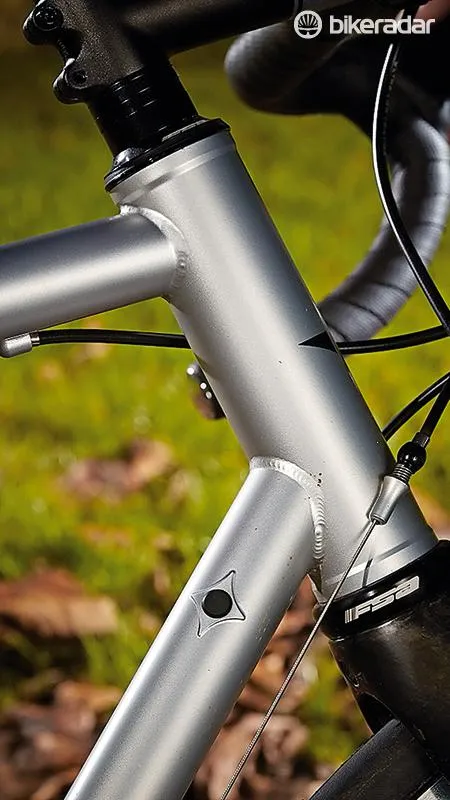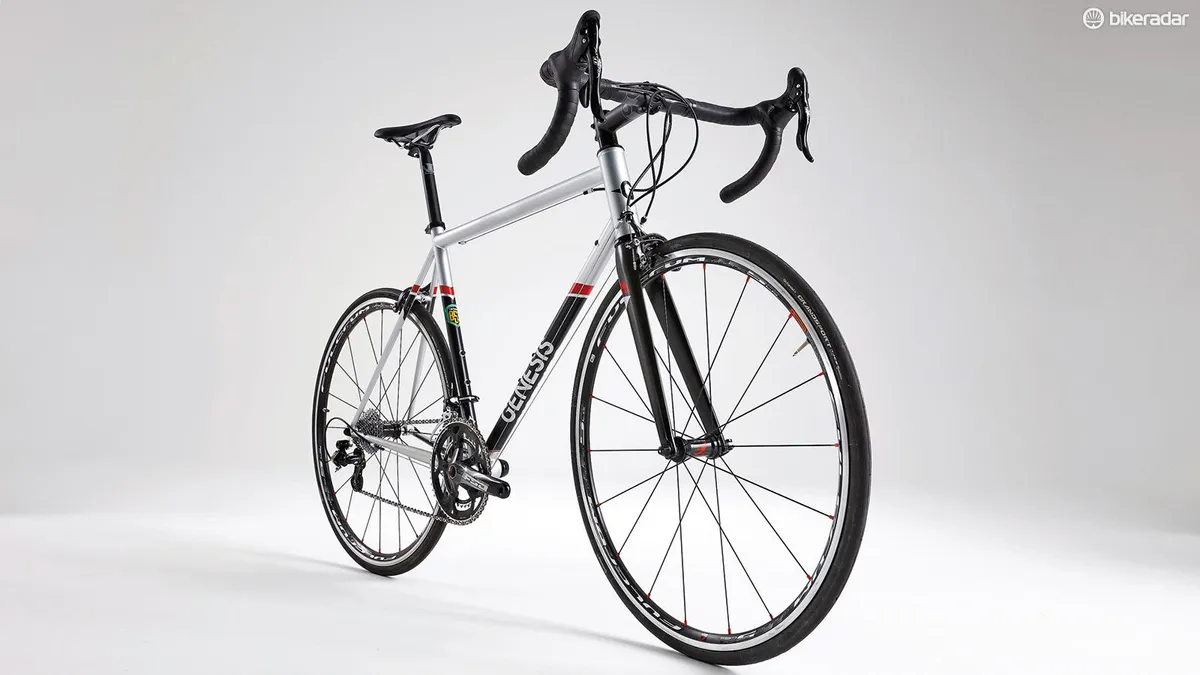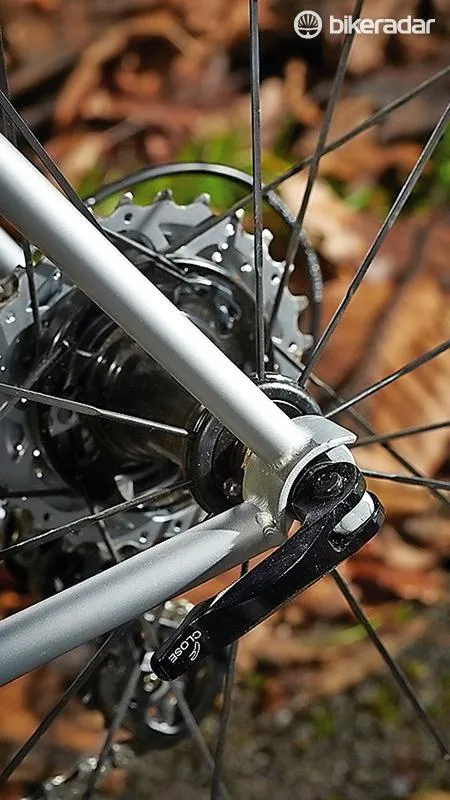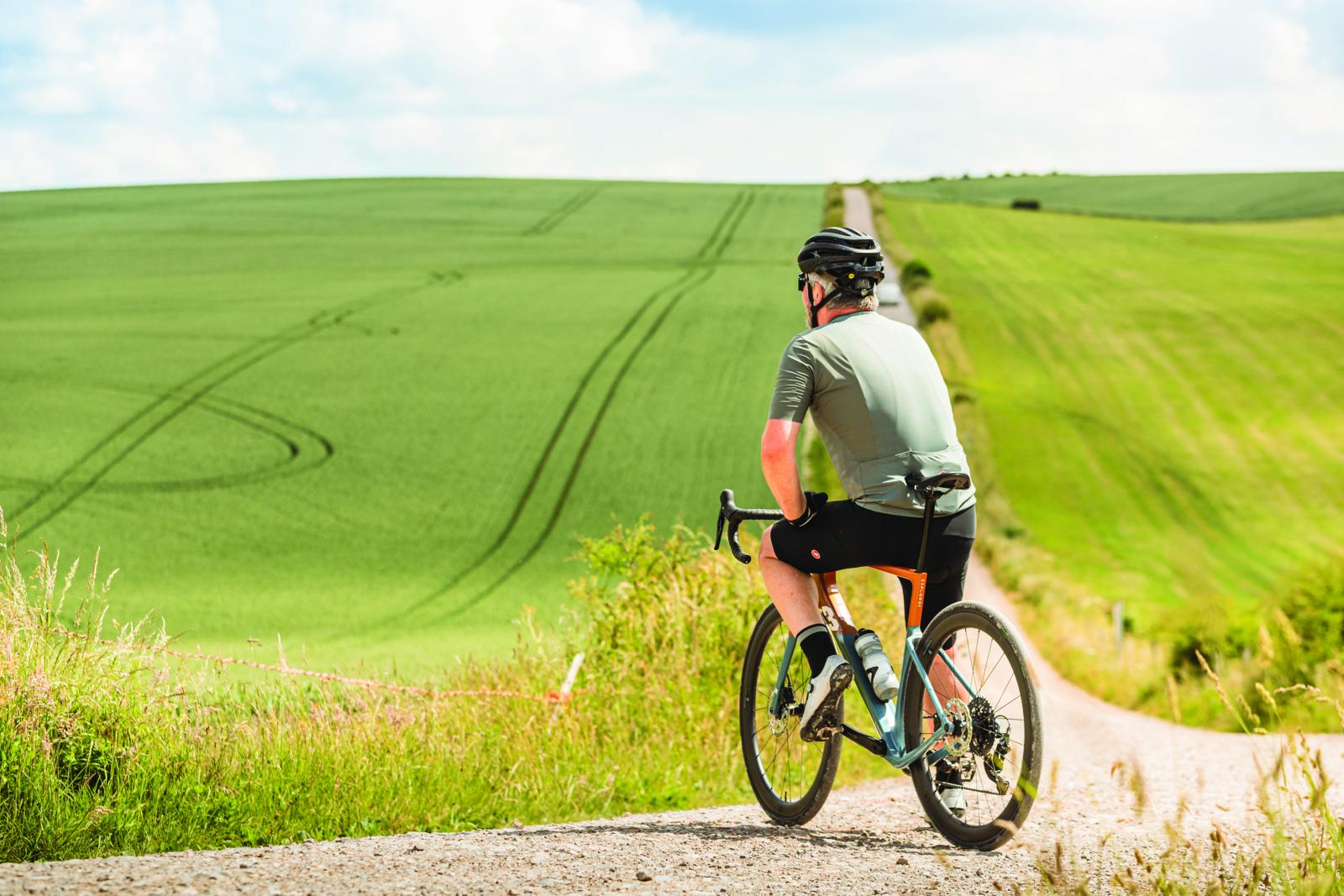UK brand Genesis forged its reputation with a range of classy steel road bikes, including the 953 stainless race machine ridden by Madison Genesis in the UK Tour Series for the last few seasons.
- Highs: The steel frame gives a great quality ride, well matched by the drivetrain and wheels
- Lows: Not the lightest bike around
- Buy if: You want a bike with assured handling and you’re not too concerned with light weight
The heart of the Volare 40 is a frame made from Reynolds 853 steel tubing, the high strength to weight ratio of which allows for thinner tube walls. The main tubes have larger than usual diameters and the bottom bracket shell is an oversized BB86, while up front the carbon ADK fork tapers from 1 1/8 to 1 1/2in but is housed in a straight head tube, giving the 40 quite a burly appearance at the business end. Large chainstays sit well with the oversizing of the main tubes, adding to the impression of a bike built for stiffness.

The fork steerer tapers, but it’s hidden in a straight head tube
Out on the road you'd be forgiven for expecting the 40 to deliver a tough, stiff ride, when almost the opposite is true. The Volare feels like it floats over rough tarmac, with enough compliance to take the hard edges off potholes. Much of that is because of the frame and fork, but a decent chunk is down to the excellent Fulcrum Racing 5 wheels. These have always been a staple of bikes at this price – tough, light enough and extremely hardwearing – and the new LG CX versions have a wider rim, increasing the volume of their 25mm rubber, helping it to roll smoothly and provide plenty of grip. When we threw ourselves into the fast, twisty downhills on our test loop the 40 proved to be an assured descender.
The Campagnolo Athena drivetrain performs brilliantly, with positive, rapid mechanical shifts and a distinct lack of noise or drama. We especially like the reworked thumbshifter button on the Ergolevers: it’s lower and angled back towards the rider, making shifting from the drops easier. The Skeleton Athena brakes offer good power, too, and plenty of control, and the QR release from the Ergolevers is a great ergonomic touch.
The only downside of the 40 is that it’s not exactly feathery light at 8.92kg, and with a gearing combination of 52/36 and 11-27, which leans more towards rolling speed than climbing. Ascents never felt much of a chore, though – you just have to adjust yourself to the slower pace.


